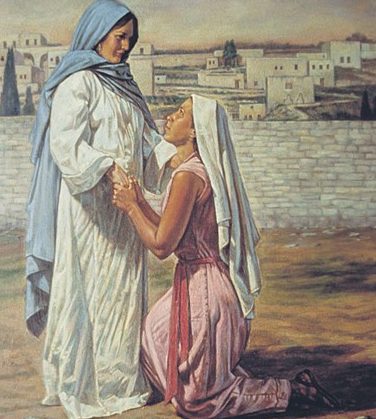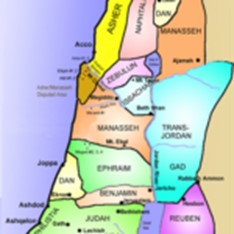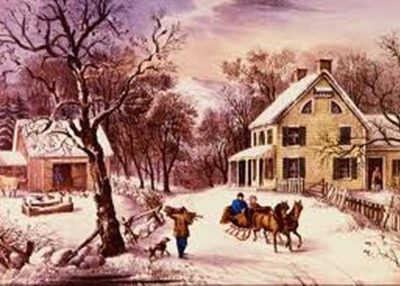Naomi

Naomi is a brave virtuous woman who lost everything she had and was forced to return home in poverty with a daughter-in-law who was from Moab. It is a beautiful story about love, dedication and even restoration of the soul. “There is a son born to Naomi.” His name was Obed and he was the grandfather of King David and part of the lineage of Jesus Christ. (Ruth 4:17).
Naomi was the wife of Elimelech and the mother of two sons, Mahlon and Chilion, Ephrathites of Bethlehemjudah. There was a famine in Bethlehem a city in Judah, and Elimelech took his family to live in the country of Moab. (Ruth 1:1-2). Elimelech died leaving Naomi alone with her two sons. Mahlon and Chilion took wives of the women of Moab; the name of the one was Orpah, and the name of the other Ruth: and they dwelled there about ten years. Naomi was the mother-in-law to Ruth and Orpah. (Ruth 1:4).
Moabites, traditional were the enemies of Israel. Moabites serve other gods this would cause the Children of Israel to be often in trouble for associating or socializing with the foreigners: “And the children of Israel did evil again in the sight of the LORD, and served Baalim, and Ashtaroth, and the gods of Syria, and the gods of Zidon, and the gods of Moab, and the gods of the children of Ammon, and the gods of the Philistines, and forsook the LORD, and served not him.” (Judges 10:6). Marriages with Moabites was not forbidden by the law. The Moabites were not allowed in the congregation of the Lord to the tenth generation. Because they would not meet the children of Israel with bread and with water in the way, when they came forth out of Egypt; and because they hired against them Balaam the son of Beor of Pethor of Mesopotamia, to curse them. (Deuteronomy 23:3). The LORD God turned that curse into a blessing. (Nehemiah 13:1–3).
Mahlon and Chilion both died also both of them. Naomi now was left with the two wives of her sons. (Ruth 1:5). Then Naomi arose with her daughters in law that she might return from the country of Moab. She had heard in the country of Moab how that the LORD had visited His people in giving them bread. Naomi made preparations for returning to Judah. Orpah and Ruth did not question their duty to accompany their mother-in-law, though it meant leaving their own land. (Ruth 1:6-7). Their dedication to Naomi suggests her kindness to them.
Naomi said unto her two daughters in law, Go, and return each to her mother’s house: the LORD deal kindly with you, as you have dealt with the dead, and with me. Naomi realized the difficulties that faced her daughters-in-law. Therefore she released them from all obligation to her by encouraging them to return to their mother’s home. It was not a simple dismissal Naomi wished for them that the LORD grant them that they may find rest. Then she kissed them; and they lifted up their voice, and wept. They fully expected to go with Naomi. Even when Naomi discouraged them and turned them away they did not go. Naomi told them the LORD had gone against her because He took her husband and both her son’s. Both Orpah and Ruth lifted up their voice, and wept. Orpah kissed her mother in law; but Ruth clave unto her. Naomi told Ruth that her sister in law is gone back to her people, and unto her gods and Ruth should do the same. (Ruth 1:8–15).
Ruth begged Naomi not to make her return to her family and her home. Ruth wanted to follow after Naomi. Ruth said the famous words we all remember and long to hear “whither you go, I will go; and where you lodge, I will lodge: Your people shall be my people, and your God my God: Where you die, will I die, and there will I be buried: the LORD do so to me, and more also, if ought but death part you and me.” (Ruth 1:16–17). Such passionate dedication from a daughter in law.
When she saw that she was steadfastly minded to go with her, then she left speaking unto her. Naomi allowed Ruth to go with her and they traveled until they came to Bethlehem. When the city people ask if it was in deed Naomi she told them not to call her Naomi instead call her Mara; for the Almighty has dealt very bitterly with her. (Ruth 1:18–21).
We see the humanistic side of Naomi she is discouraged returning home having lost her husband and both her son. We always want to return home being better off than what we were when we left. That is human nature Naomi’s whole existence was to care for her husband and raise her two sons. We certainly can assume that Naomi was not only discouraged but even bitter because of the turn her life had taken. It is okay to grief the loss of so much there does come a time when you have to pick yourself up and go forward again.
Maybe Naomi forgot why the family moved to Moab in the first place to survive the famine in Bethlehem a city in Judah. It was ten years of hard times Naomi had gained wisdom, integrity and endurance. Now she was home and no one there to embrace her. Her neighbors and relatives could not understand let alone embrace the struggles Naomi had in Moab and still remaining true to the LORD God. Now she was home without a husband, without her two sons, she was living in poverty and had nothing left except her Moabite daughter-in-law, Ruth, and an emptiness in her heart. Naomi may have lost hope, she never did lose her faith. It was an act of faith she returned to Bethlehem with Ruth.
Naomi is a strong example for us. I am sure there has been times in your live when you have called out “Call me Mara” I know I certainly have. This does not mean we are weak or bitter forever. It means we need to call upon the name of Jesus to help us conquer the hopelessness and the bitter despair that at this time in our journey through life has knocked us down. We need to ask the Lord to restore us and guide us back to health, hope and erase the despair that is plaguing us.
Naomi returned, and Ruth the Moabite, her daughter in law, with her. Two women of two different generations and two different social and religious backgrounds who have shared the same type of tragedy and loss. They returned out of the country of Moab: and they came to Bethlehem in the beginning of barley harvest. (Ruth 1:22). The beginning of the barley harvest was in March to April. This would confirm the reason Naomi returned to Bethlehem; the famine was over.
Naomi had a kinsman of her husband’s, a mighty man of wealth, of the family of Elimelech; and his name was Boaz. And Ruth the Moabitess said unto Naomi, Let me now go to the field, and glean ears of corn after him in whose sight I shall find grace. Naomi said unto Ruth, Go, my daughter. Ruth went and gleaned in the field after the reapers. Ruth had an unforeseen meeting or event, accident, happening on a part of the field belonging unto Boaz, who was of the kindred of Elimelech. (Ruth 2:1-3).
Boaz came from Bethlehem, and said unto the reapers, The LORD be with you. And they answered him, The LORD bless you. Boaz asked his servant that was set over the reapers, Who Ruth was. The servant that was set over the reapers answered and said, it was the
Moabite damsel that came back with Naomi out of the country of Moab. (Ruth 2:4-7).
This was the beginning of the restoration of the hope for Naomi. The LORD was in that meeting between Boaz and Ruth. It is so clear the love and devotion that Ruth had for Naomi. Equally the dedication and the love that Naomi had for Ruth. Ruth asked Naomi for permission to glean in the field of Boaz. Naomi said go my daughter; not daughter-in-law, but daughter.
Instruction Naomi Gave to Ruth
Naomi gave Ruth instruction according to the Israelite customs of the time. Naomi called Ruth “my daughter” and referred to Boaz as “our kindred”. The transformation of the relationship between Naomi and Ruth had reached a new level height. Naomi had become the mother to Ruth. Naomi embraced Ruth as her daughter out of love and caring for her, not out of obligation because she was her son’s wife. Naomi had become the mother to Ruth.
Naomi gave instruction to Ruth to prepare her for the meeting with Boaz who was winnowing barley that night in the threshing floor. Wash yourself, and anoint yourself, and put your raiment or garment on, and get down to the floor: but do not make yourself known unto the man, until he is finished eating and drinking. (Ruth 3: 3).
These instructions seem pretty straight forward for expressing the desire to be the wife of Boaz. Bath, anoint and put on clean cloths. This is certainly easier for us all we have to do is hop in the shower apply deodorant and a splash of perfume behind our ears and we are ready. This bathing and anointing is a reminder of the importance of our cleanliness also for our Lord Jesus. If we want to have a relationship with Christ we need to present ourselves as cleanse from all filthiness of the flesh and spirit, perfecting holiness in the fear of God. (2 Corinthians 7:1).
The next part of the instruction that Naomi gave Ruth was to put your raiment or garment on. I would think this is not just the clean clothes you wear every day but the clothes that is for special wear. It would be like our “Sunday best.” Naomi wanted her daughter to look her absolute best when she met Boaz. Dressing our best give a good first impression. We know that Boaz had already asked who Ruth was so he did show some interest. Ruth would have been dirty, smelly and tired. (Ruth 2:5). Naomi knew the importance of having her garments clean in order to impress Boaz.
Naomi instructed Ruth to get down on the threshing floor where the winnowing of the barley was to be done in the valley below Bethlehem. This is where Ruth would find Boaz. Ruth must not make herself known until Boaz had finished eating and drinking. It was common practice after the winnowing there was a feast to celebrate the completion of the harvest. Ruth was instructed to wait until Boaz had finished eating and drinking. Ruth was to wait until all was over before pursuing Boaz. It all had to be in the timing of the LORD.
Naomi instructed Ruth when he lies down, that she shall mark the place where he shall lie, and she shall go in, and uncover his feet, and lay down; and he will tell you what she shall do. (Ruth 3: 4). Naomi gave these instructions with detailed description and without any hesitation with great confidence this was the right and honorable action to take place. Naomi made sure Ruth acted purely and properly most of all virtuously. Naomi had faith and trust that what she had instructed her daughter was the honorable action to take. Naomi promised Boaz would then tell Ruth what to do. Naomi was attempting to get Ruth married to the good man Boaz.
Naomi took care of her daughter and Ruth was an example of obedience. Naomi was no longer being asked to be called “Mara” she had been restored. Boaz did marry Ruth and they gave Naomi a grandson. Naomi helped to raise that son. “There is a son born to Naomi.” His name was Obed and he was the grandfather of King David and part of the lineage of Jesus Christ. (Ruth 4:17).
What we should learn from the brave Naomi is we need to humble ourselves at the feet of Jesus. “Humble yourselves in the sight of the Lord, and he shall lift you up.” (James 4:10). Naomi taught us that we can find restoration and fulfillment at the feet of Jesus. Jesus Christ will guide us and give us a glad heart and restore us. “That at the name of Jesus every knee should bow, of things in heaven, and things in earth, and things under the earth.” (Philippians 2:10).
Naomi was not only brave but also obedient to the LORD God. She lost her husband and two sons yet she gain a daughter. Naomi loved and was devoted to her daughter Ruth and guided her to marry the kinsman Boaz.
Cite Article Source
MLA Style Citation:
Holstein, Joanne “Naomi:.” Becker Bible Studies Library Jan 2015.< https://guidedbiblestudies.com/?p=2107,>.
APA Style Citation:
Holstein, Joanne (2015, January) “Naomi:.” Becker Bible Studies Library. Retrieved from https://guidedbiblestudies.com/?p=2107 ,.
Chicago Style Citation:
Holstein, Joanne (2015) “Naomi:.” Becker Bible Studies Library (January), https://guidedbiblestudies.com/?p=2107 , (accessed).


